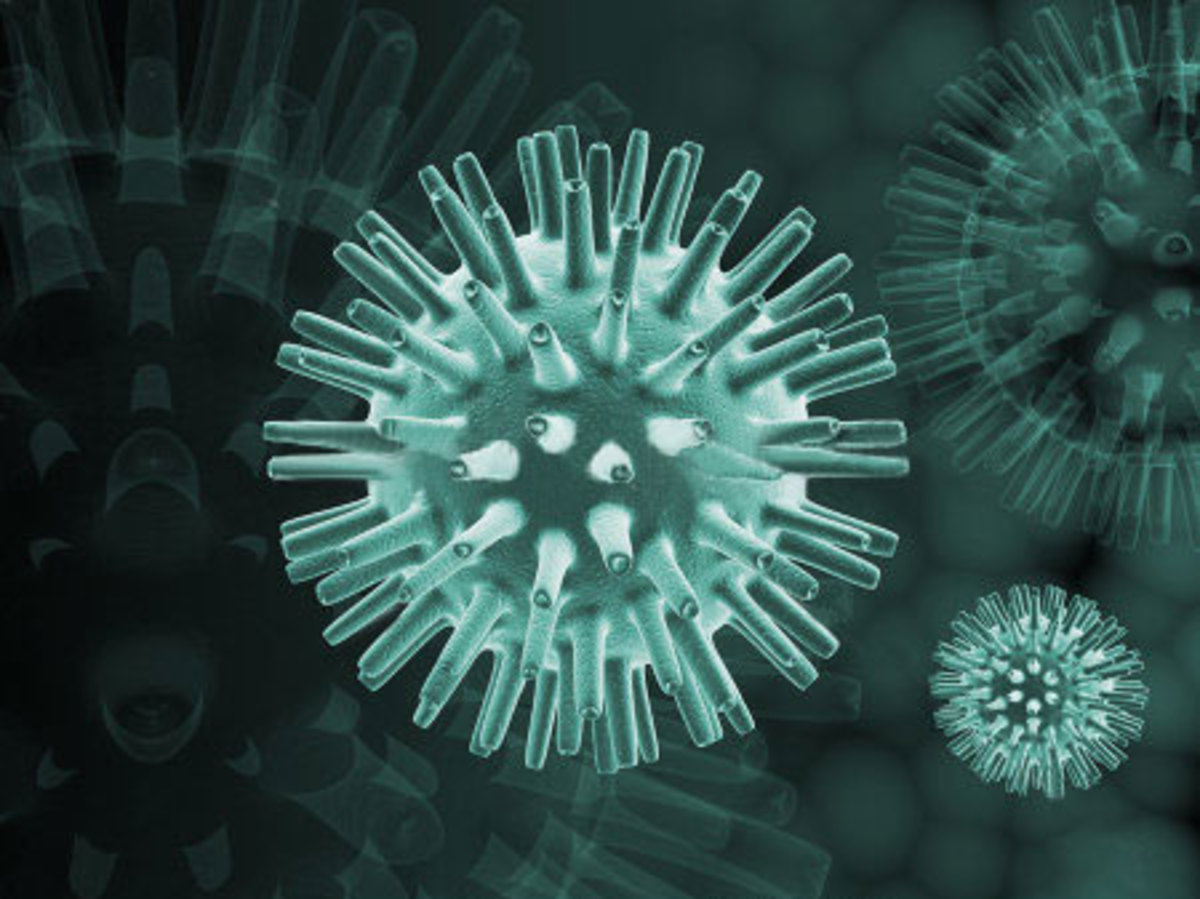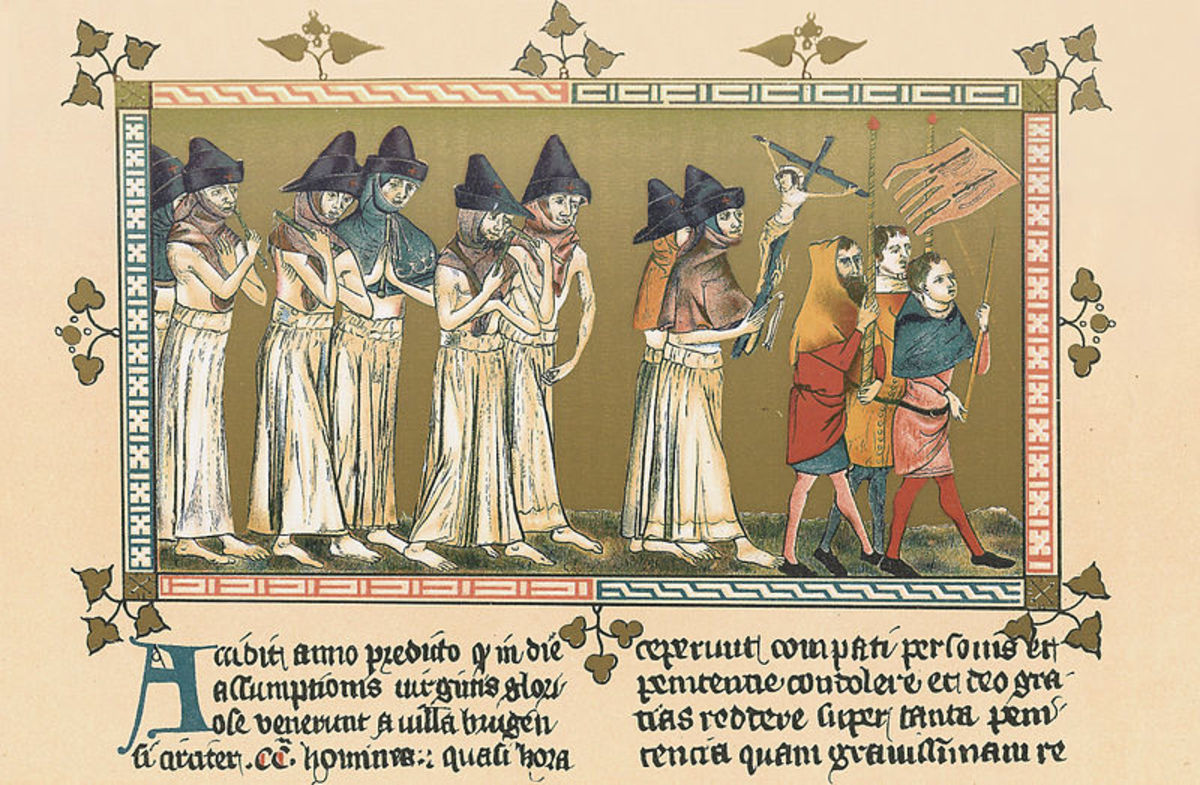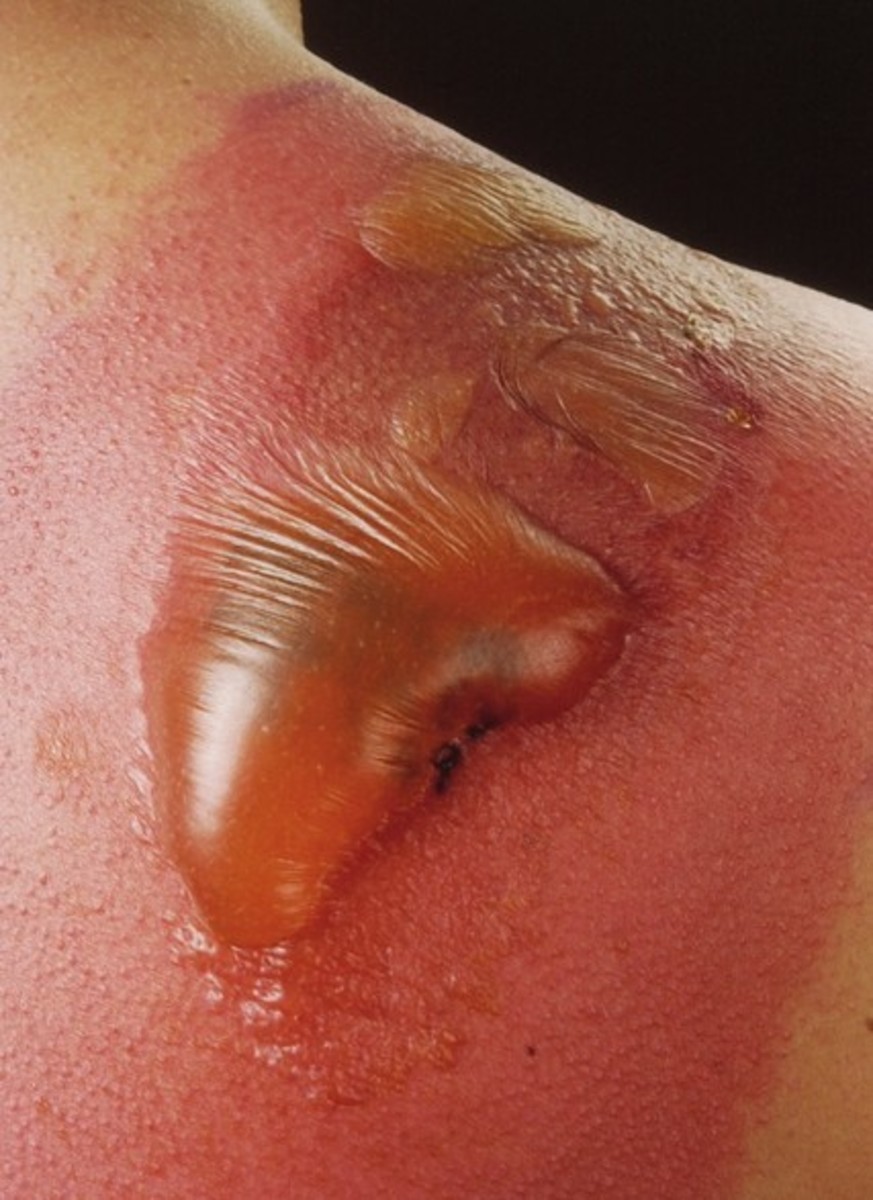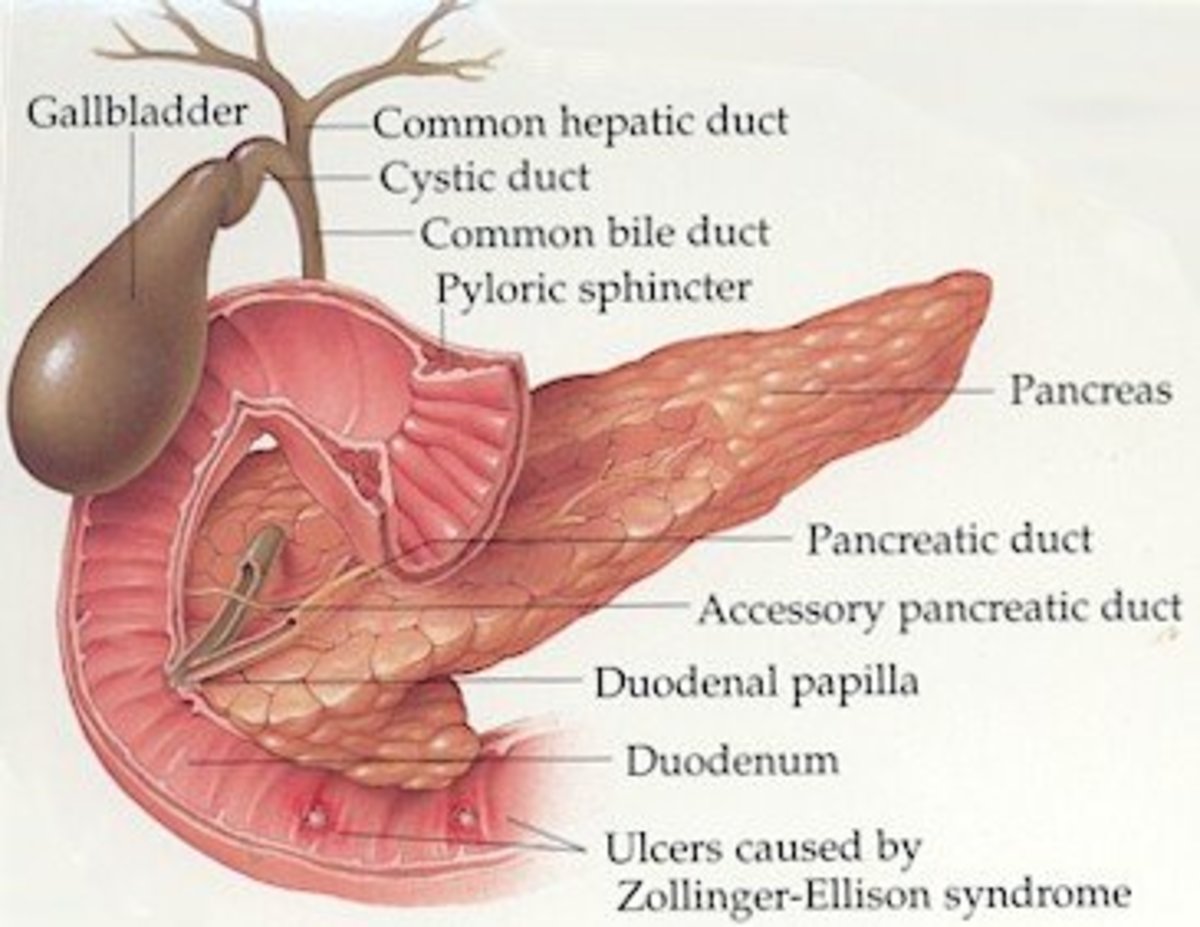Is There a Secret Cure for HIV/AIDS?
Magic Johnson was diagnosed with HIV in 1991.

Introduction
For most people, HIV and AIDS are probably two of the scariest and saddest diagnosis they could ever imagine themselves or a loved one receiving. Hearing the word "AIDS" alone is enough to put fear of unprotected sex and used needles into many hearts. Being HIV-positive is usually assumed to be an inevitable death sentence. I've personally heard people say that, if they contracted the disease, they would prefer to kill themselves and die immediately rather than to wait and suffer longer. Unlike many other diseases, it's widely believed there's no way out.
I used to think of AIDS patients as basically walking dead. I thought the most someone could expect after being diagnosed was a year or two of misery. Then, a few years ago, I started hearing about new, secretive cures that the medical industry was coming up with. I heard different conspiracy theories about the way HIV/AIDS started, that individuals were being denied treatment in order to kill off the poor, and that there were cures, but only for the most famous and richest people.
Do you currently know anyone affected by HIV or AIDS?
Reports of Cures?
According to AVERT, one of the biggest international charities with the goal of helping HIV/AIDS patients and finding a permanent cure, there is currently no cure for the HIV/AIDS infection. They warn patients against using at-home cures because they waste money and can be more harmful than effective. AVERT does, however, claim that there is good possibility of someday finding a functional cure.
Although AVERT and many of the other major AIDS charities say that there is no cure yet, many others disagree. Some people believe that the charities are worried that the current "cures" have side effects that will end up causing more harm than good to the patients bodies in the long run. Some think that the groups assume they will make more money in donations to search for a cure than to treat existing patients, so they deny a proven cure in order to keep from losing money. Others even feel that the major charities, particularly the most government-funded groups and organizations that run off donations provided by different hospitals and medical fields, are working alongside the biggest politicians and doctors to promote a false theory- that there is no cure.
There have been several news articles from across the world in which different people claim that they have been cured of HIV or AIDS. Many of these have been proven false, but others are still being researched. Normally, the more recent cases are more likely to be believed true. Some people who have claimed to be virus-free have gone on to test positive again years later (although this doesn't necessarily mean they weren't cured- there's a possibility that some re-contracted it later), but a few doctors have reported patients still testing completely negative for the HIV/AIDS virus years after they report being cured.
Right now, it is very hard to know for sure who is telling the truth and who has something to hide, especially considering that many cures have been claimed in small or third-world countries, where typically medicine isn't as regulated and advanced. This does not necessarily mean the countries are lying, especially in places with a high AIDS-positive population. Having more test subjects makes a study more reliable, but unfortunately, certain doctors have taken advantage of impoverished people desperate for a cure in the poorest countries, particularly areas of Africa. Deaths from AIDS treatments and medicinal trials gone wrong have been reported in studies, and usually, deception by doctors is easier to get away with in third-world countries, especially where people with HIV/AIDS are shunned by the rest of society. Fear of these diseases can make a once respected individual into an outcast. Sadly, these fears make HIV/AIDS a very avoided subject, which makes investigating cures found in these areas extremely hard.
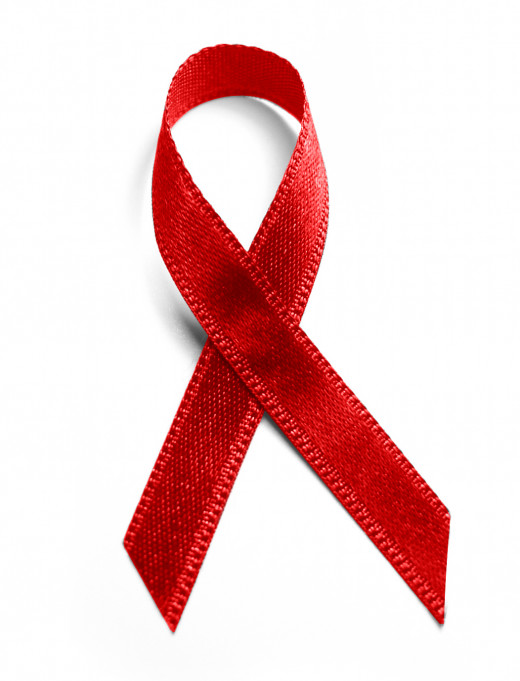
HIV/AIDS Deaths- Poor vs. Rich
Isn't it interesting how you hear about babies in Africa and Haiti being born with HIV and dying before their second birthday, but American celebrities like Magic Johnson have been living for over 20 years now? It is a known fact that people who live in America, Canada, and Europe and are diagnosed with HIV or AIDS have an increased lifespan of, on average, up to 10 times longer than those diagnosed in other countries. Africa, particularly sub-Saharan Africa, the Caribbean, the Pacific Islands, and many parts of Asia are the most AIDS-populated areas and have the highest death rates. The richest countries have the best survival rates due to better medical treatments and more access to doctors and medicine, but there are differences between the treatment of rich and poor individuals, even inside the exact same country.
In the United States, a person with HIV who stays in good health and takes the required medicines daily can sometimes expect to live for at least 25 years after being diagnosed. The projection for someone living with HIV/AIDS currently is even better, since every few years the average lifespan gets longer. Many well-off people, even ones who don't believe in a successful cure right now, are somewhat optimistic that they will be able to live a full life.
For poor Americans (as well as the poor in most other countries), this isn't the case. The average patient with HIV/AIDS is prescribed multiple different pills, sometimes 20 or 30 per day, and they are typically expensive. Not all insurance fully covers these treatments, and many poor people don't have health insurance anyway. AIDS clinics that provide free or low cost treatments have been opening up in low-income communities lately, but in many areas, they still are not easy to find. The stigma of being HIV positive can be worse among the poor, who usually don't have access to as much education on the topic. Poorer people in rural communities often lack transportation to visit doctors on a regular basis. Also, staying in good health, which is a huge factor in HIV/AIDS survival, can be a struggle for low-income individuals. Eating a healthy diet, getting regular medical care for normal illnesses like colds and the flu, and even staying warm can be hard for the poor. Plus, living in an area where a lot of the population is already infected increases one's chance for infection, even if they practice safe sex and avoid IV drugs. HIV/AIDS can be spread by contact with blood, semen and feces, which can sometimes be come across accidentally.
It seems unfair that a rich person who contracts HIV/AIDS by using irresponsible behavior will most likely live longer and more comfortably than a poor person who gets the virus by cleaning up infected blood or being raped. (*In no way whatsoever am I saying that anyone does not deserve treatment, no matter how they were infected.*) Some people say this injustice is part of a conspiracy theory to rid the world of the unhealthy and poor. Others feel that the unequal treatment of HIV/AIDS patients is just another sad reality of the difference in any living standards between the upper and lower classes.
Do you believe in a HIV/AIDS cure?
How Much Money is HIV/AIDS Worth?
There has been evidence presented that medicine manufacturing companies, doctors/nurses/all hands-on medical professionals, hospitals, and the whole medical industry in general makes more money by treating patients with HIV and AIDS than they do by searching for a cure. This leads some to believe in the theory that the medical industry has already discovered the cure for the HIV/AIDS virus and is keeping it hidden in order to make more money. (This theory is also often talked about in regards to a cure for cancer.)
Besides the obvious moral problems that most people would have with intentionally letting sick people die so big companies can stay rich, this raises many questions. A few reports have been published in recent years investigating how true this is. I examined over 30 different websites to see if I could validate the costs of treating an AIDS patient vs. curing them, but almost every website and organization has different information.
Here are some pretty reliable statistics on certain HIV/AIDS costs that can both positively and negatively affect the medical industry, the government and government-sponsored programs, insurance companies, and patient suffering from the disease, as well as their loved ones:
AVERAGE OUT-OF-POCKET COST FOR PRESCRIPTION HIV/AIDS MEDICINE PER UNINSURED PATIENT: $15,000-$25,000 per year
Some insurance companies do not cover the cost of HIV/AIDS medicine. Others do, but many have high co-pays. Medicaid now will often cover poor people with HIV and AIDS, which is a step in a good direction. However, some affected individuals complain that they are denied coverage or are treated unfairly and discriminated against by both their insurance companies and the doctors and hospitals at which they need to make their appointments. HIV and AIDS are also treated as pre-existing conditions, which can greatly affect the costs for health insurance. Additionally, it is almost impossible to get life insurance once you are diagnosed as HIV-positive. This makes it extremely hard for a person living with HIV/AIDS to provide for their dependents after they die.
Many major pharmaceutical companies have refused to allow generic versions of HIV/AIDS drugs to be made. Generic medicines can cut prescription costs down by more than half.
STRAIGHT MEN HAVE THE LOWEST RISK OF HIV/AIDS INFECTION. GAY MEN AND GAY AND STRAIGHT WOMEN HAVE HIGHER RISKS THAN STRAIGHT MEN.
Even in today's world, homosexuals face a huge amount of discrimination and women are often still looked at as less important than men. This is not always the case, but the majority of people in the highest positions of power in the government and big companies are straight men, who have the lowest chance of getting HIV/AIDS. Some people feel that the people who have the most influence on finding an HIV cure and better treatments are not as worried as they should be because of the fact that they aren't as affected as other people. There are even certain religious organizations that protest against finding a cure for HIV/AIDS. I saw a man with a shirt once that read, "AIDS is God's punishment for being a FAG." Hopefully most people find attitudes like that towards treating infected individuals wrong, but even small groups of people can have big influences.
"CLEAN NEEDLE" CLINICS AND DETOX TREATMENT FOR DRUG USERS ARE DISAPPEARING; INFECTION RATES FOR IV-DRUG USERS ARE GOING UP.
IV-drug users (people who shoot up drugs like heroin and liquid meth with a needle) are very likely to contract the HIV/AIDS virus by sharing needles. They are usually thought of as the highest at-risk group other than gay men. For a while, many cities opened up "clean needle" clinics that provided new and sterilized needles to people who shot up drugs to keep them from using dirty needles and becoming infected with HIV. Now, many cities are shutting down these clinics and organizations are claiming that they promote drug use. While I understand why providing tools for someone to do illegal drugs seems like a bad idea, it realistically helps prevent the spread of HIV/AIDS and actually does not cost an extreme amount. It was found that the majority of people who do drugs with needles aren't going to start or stop based on whether or not a clinic will give them needles, but they will use the clean needles if they are provided. People who lack empathy for them since they are still choosing to use drugs should know that HIV/AIDS rates in non-drug users can also go down with clean needle clinics. Obviously, anyone that has sexual relations or gets raped by an IV-drug user that has HIV/AIDS can still get the disease from the sexual fluids or blood.
Many hospitals have been criticized for infecting patients with HIV by giving them blood transfusions that were donated by people who were infected. Blood is supposed to be screened for the HIV virus and other blood diseases, but sometimes quarts of blood can slip through without being checked. I personally feel that hospitals should re-test the blood before it is given to someone, but after researching this idea, it seems that most places consider it too expensive to keep testing for antibodies in the blood. Considering that one AIDS patient on government support can cost over hundreds of thousands of dollars over their lifetime, it doesn't seem too expensive to me.
IT IS ESTIMATED THAT PHARMACEUTICAL COMPANIES CAN MAKE AS MUCH AS 20 TIMES THE AMOUNT OF WHAT THEY PAY TO MAKE HIV/AIDS DRUGS BY SELLING THEM AT HIGH COSTS. THEY ALSO SPEND MORE MONEY ON MARKETING THE DRUGS THAN THEY DO ON RESEARCHING THE EFFECTIVENESS AND LOOKING FOR A CURE.
Pharmaceutical companies could very well be selling HIV/AIDS medication for a lower cost and providing help to more people, while still making a profit. The owners of the major pharmaceutical companies are usually millionaires or billionaires. Their salaries and/or the amount spent on advertising could be lowered and more money could be used to find a cure. It should be noted, however, that they sell medicines for other conditions at this increased rate too. Are big pharmaceutical companies just greedy, or are they intentionally trying to avoid finding a cure?
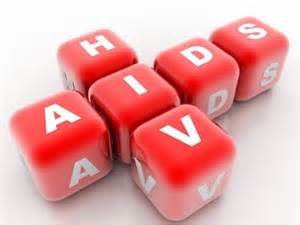
When will we know?
Unfortunately, there doesn't seem to be enough conclusive proof available right now to know for sure whether or not there is a secret cure for HIV/AIDS. I personally feel that we have enough evidence to demand further investigation and that, even if there is not a probable cure right now, parts of the government and pharmaceutical companies could be doing more to help find a cure. If they are, more information about their efforts should be available to the public for people who want to stay informed.
You can help by contacting the FDA and asking them to examine pharmaceutical companys' practices in HIV/AIDS research more closely. There are also several charities who accept monetary donations to help with cure research. (The BBB and a few other sites have lists of legit charities.Be careful to avoid scams.) Another thing you can do is get tested. If you have HIV/AIDS, it's best to start treatment early, and hopefully people who are infected will now be able to hold off death until a cure is revealed or found. The large amount of people getting tested these days also makes an impact on the way health officials consider this problem.



